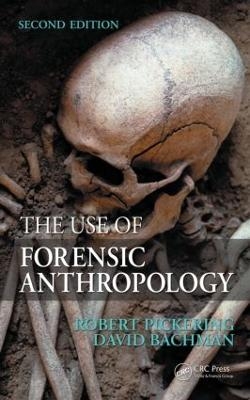
The Use of Forensic Anthropology
Seiten
2009
|
2nd edition
Crc Press Inc (Verlag)
978-1-4200-6877-1 (ISBN)
Crc Press Inc (Verlag)
978-1-4200-6877-1 (ISBN)
A forensic investigation requires a team of specialists from many different scientific fields of study along with legal and law enforcement specialists. This book provides these professionals with guidelines for determining how to choose and when to use a forensic anthropologist.
A forensic investigation requires a team of specialists from many different scientific fields of study along with legal and law enforcement specialists. In recent years, the range of cases on which forensic anthropologists have been consulted has expanded dramatically. The Use of Forensic Anthropology provides these professionals with guidelines for determining how to choose and when to use a forensic anthropologist.
The book begins with a historical overview of the field of forensic anthropology, and then presents basic information about how to approach a forensic recovery site. When skeletal or severely decomposed remains are discovered, normal methods of identification such as facial recognition and fingerprinting are ineffective. This book offers insights on how to find the right professional to assist with these difficult cases.
One of the key features is a chapter which presents a series of ten questions that must be answered, in order, about each case. Using this checklist will ensure the team working on the case that no stone is left unturned. Later chapters examine the relevance of race, ethnicity, and ancestry, determination of time of death, new investigation techniques, DNA, and categories of trauma. The final chapter brings the various parts of the process together to reconstruct a case.
The first responder to a scene with skeletal remains and the law enforcement agencies who become involved will likely be confronted with evidence that they cannot interpret. This volume provides a bridge for these professionals, enabling them to develop a standard protocol for investigating skeletal remains, highlighting important questions that must be answered, and assisting them in finding the right forensic anthropologist to solve the puzzle of an unexplained death.
A forensic investigation requires a team of specialists from many different scientific fields of study along with legal and law enforcement specialists. In recent years, the range of cases on which forensic anthropologists have been consulted has expanded dramatically. The Use of Forensic Anthropology provides these professionals with guidelines for determining how to choose and when to use a forensic anthropologist.
The book begins with a historical overview of the field of forensic anthropology, and then presents basic information about how to approach a forensic recovery site. When skeletal or severely decomposed remains are discovered, normal methods of identification such as facial recognition and fingerprinting are ineffective. This book offers insights on how to find the right professional to assist with these difficult cases.
One of the key features is a chapter which presents a series of ten questions that must be answered, in order, about each case. Using this checklist will ensure the team working on the case that no stone is left unturned. Later chapters examine the relevance of race, ethnicity, and ancestry, determination of time of death, new investigation techniques, DNA, and categories of trauma. The final chapter brings the various parts of the process together to reconstruct a case.
The first responder to a scene with skeletal remains and the law enforcement agencies who become involved will likely be confronted with evidence that they cannot interpret. This volume provides a bridge for these professionals, enabling them to develop a standard protocol for investigating skeletal remains, highlighting important questions that must be answered, and assisting them in finding the right forensic anthropologist to solve the puzzle of an unexplained death.
Pickering, Robert B.; Bachman, David
Introduction. 'Some Bones Have Been Found'. What the Forensic Anthropologist Can and Cannot Do. Techniques for Recovering Skeletonized Human Remains. Ten Key Questions. Assessing Ancestry (Race) From the Skeleton. Determination of Time since Death. Special Techniques – Their Value and Limitations. An Introduction to Forensic Science and DNA. Skeletal Trauma and Identifying Skeletal Pathology. Putting Your Case Together. Appendix. Glossary. Bibliography
| Erscheint lt. Verlag | 1.2.2009 |
|---|---|
| Zusatzinfo | 85 Illustrations, black and white |
| Verlagsort | Bosa Roca |
| Sprache | englisch |
| Maße | 156 x 234 mm |
| Gewicht | 500 g |
| Themenwelt | Studium ► 2. Studienabschnitt (Klinik) ► Rechtsmedizin |
| ISBN-10 | 1-4200-6877-6 / 1420068776 |
| ISBN-13 | 978-1-4200-6877-1 / 9781420068771 |
| Zustand | Neuware |
| Haben Sie eine Frage zum Produkt? |
Mehr entdecken
aus dem Bereich
aus dem Bereich
Befunderhebung, Rekonstruktion, Begutachtung
Buch | Hardcover (2024)
Springer (Verlag)
199,99 €
Ein praktisches Handbuch für Ärzte und Juristen
Buch | Hardcover (2020)
Urban & Fischer in Elsevier (Verlag)
240,00 €


